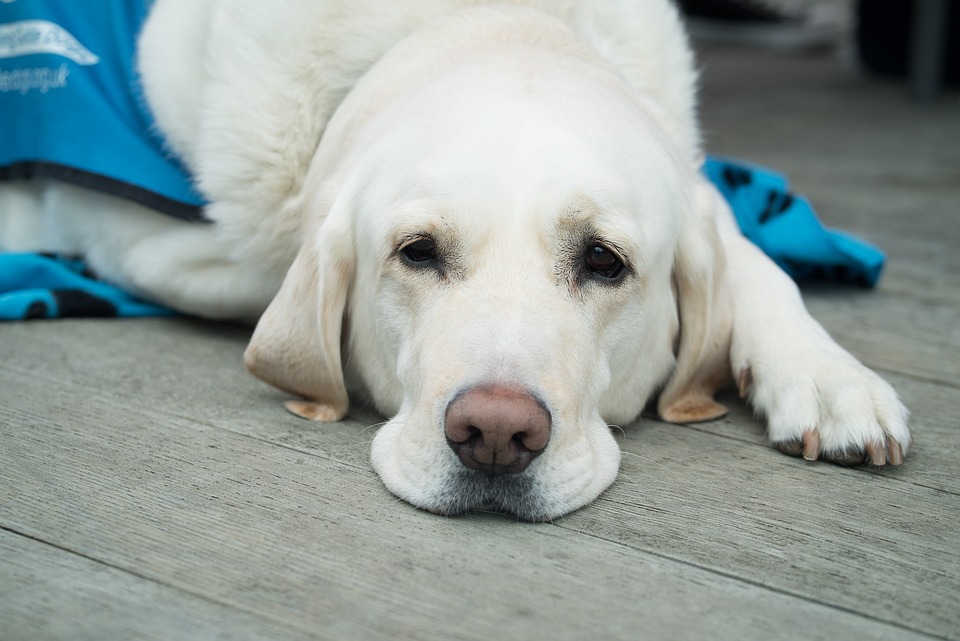Cancer in Dogs
Canine Cancer Basics, Types, and Signs
 No one wants to learn that their dog has cancer. That’s why we raise money every October during Cuts for the Cure for the Canine Cancer Foundation. Unfortunately, cancer is a real problem, and 50% of dogs over age 10 will have the disease at some point.
No one wants to learn that their dog has cancer. That’s why we raise money every October during Cuts for the Cure for the Canine Cancer Foundation. Unfortunately, cancer is a real problem, and 50% of dogs over age 10 will have the disease at some point.
These numbers may seem high, but dogs actually get cancer at the same rate as humans. And, just like in humans, not all cancer is the same, and not all forms are life-threatening.
Dog Cancer Basics
First, no matter which species gets cancer, this term always describes abnormal cells growing out of control. This occurs because of damaged DNA, either from environmental factors – like carcinogens – or genetics. The ability to inherit damaged DNA is why some breeds are more susceptible to certain cancers than others.
Some forms of cancer can start in one area and spread to other parts of the body. These are cancerous (malignant) tumors. And, even if the cancer spreads, it’s always named for where it started. However, it’s also important to note that not all tumors are cancerous or spread. In fact, many tumors are benign (noncancerous) and not life-threatening.
Types of Dog Cancer
There are hundreds of cancers that affect dogs. However, veterinarians see some forms more often than others, such as:
- Mast cell tumors
- Hemangiosarcoma
- Lymphoma
- Melanoma
- Osteosarcoma
- Soft-tissue sarcomas
- Mammary Gland (Breast) Cancer
The good news is that approximately half of canine cancers are treatable with early detection.
Signs of Cancer
No matter what the illness, early detection always offers the best outcomes. As a result, watch your dog for signs of disease that could include:
- Weight loss
- Loss of appetite
- Difficulty swallowing, eating, or breathing
- Sores that don’t heal
- Discharge or bleeding from body openings
- Abnormal or rapidly growing masses
- Difficulty defecating or urinating
- Lameness
And, since you know your dog better than anyone else, contact your vet if you notice any other concerning changes in behavior or personality, especially if they have no obvious cause.
Treating Cancer in Dogs
Just like there are numerous forms of cancer, there are also several treatments – and new approaches under research every day. Your veterinarian could also recommend a consultation with a veterinary oncologist to guide you through your treatment options and help you make the best choices for you and your dog.

